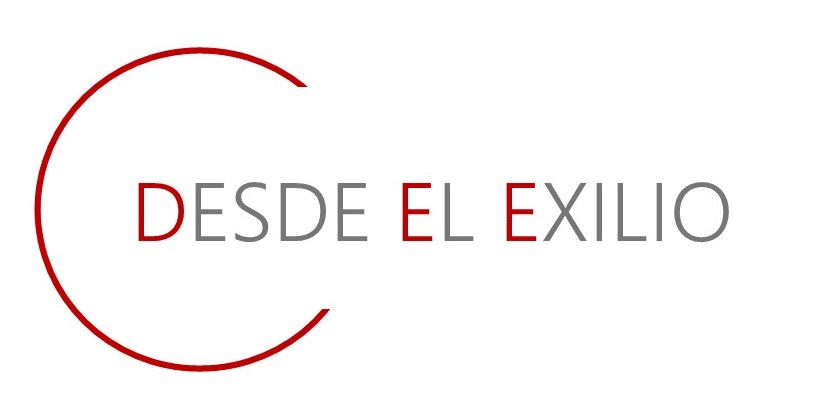Kantor y yo preparamos un cuestionario para Elkhonon Goldberg, uno de los neuropsicólogos más destacados de nuestro tiempo, así como el mayor entendido sobre la estructura y función del lóbulo frontal del cerebro. Goldberg denomina a nuestro lóbulo frontal: órgano de la civilización, pues en él residen nuestras facultades superiores, que hacen posible la vida en sociedad, y, lo que es más importante, una vida orientada más allá del corto plazo, de la supervivencia inmediata, la que, en definitiva, permite acumular capital y cultura.
Este sabio de la neurociencia nació en Letonia, cuando esta pertenecía al Imperio Soviético. Corrían los años posteriores al despotismo de Stalin y Aleksander.R.Luria, su maestro, trabajaba con el carné del Partido y sin plantearse la posibilidad de rebelarse contra el estado de cosas, acaso muy viejo ya para hacerlo. Sería injusto no reconocer a Luria, sin embargo, su portentosa obra como neuropsicólogo, cumbre de la psicologia soviética. La ciencia de Luria tenía también importantes antecedentes en la obra de Lev Vigotsky, cuya psicología del desarrollo se estudia hoy junto a la de Piaget.
Goldberg no aceptó el opresivo y asfixiante ambiente de la sociedad soviética, y huyó a la tierra de la libertad. Desde entonces ejerce como investigador de neuropsicología en EEUU, con gran éxito. Muchos de sus experimentos y de sus teorías nos los relata en sus dos obras, ambas traducidas a nuestro idioma: El Cerebro Ejecutivo y La Paradoja de la Sabiduría.
En «El Cerebro Ejecutivo«, además de relatar sus vivencias en la URSS y darnos algunas trazas de su modo de ver el mundo de hoy, nos expone con gran brillantez lo que es el lóbulo frontal de nuestro cerebro y lo que representa; y presenta dos teorias originales sobre la localización de las funciones cerebrales: la primera se refiere a la especialización hemisférica del cerebro, postulando que uno de los hemisferios se dedica al aprendizaje de nuevas destrezas, y otro a ejecutar destrezas ya aprendidas. La otra afirma que (en el caso del cerebro ejecutivo) no existe una localización concreta y modular de las funciones cerebrales sino un continuo de alta plasticidad donde estas se van colocando dependiendo de la biografia del individuo. La teoria del gradiente cognitivo es hoy la competencia de la teoria modular de la localización de las funciones cerebrales y propone la existencia de un «cerebro ejecutivo de amplio espectro», frente a la plétora de «cerebros» especializados que propone el modularismo.
En «La Paradoja de la Sabiduría» nos habla de cómo el paso del tiempo, a pesar de reducir facultades mentales por la progresiva degeneración neuronal asociada inevitablemente al envejecimiento, permite la creación de patrones, que ayudan a manejarse en la vida de forma sencilla y, en cierto sentido, clarividente, aportándonos, en su conjunto, eso que se ha dado en denominar sabiduría, que es mucho más que la simple experiencia.
Gracias a Marzo por lidiar con las sutilezas de las lenguas inglesa y española.
En ingles:
1) Haeckel said that ontogeny recapitulates phylogeny. The frontal lobe in our brain is the last one to mature, and it is the most recent part in evolutionary terms as well. Is Haeckel’s postulate followed in this case?
R. Yes, it is. The prefrontal cortex in particular is among the most recent phylogenetically and the latest to mature in ontogenesis. In keeping with Hughlings Jackson’s law of «evolution and dissolution» it is also the most vulnerable to the effects of diverse neurological assaults and to the effects of normal aging.2) Brain trainer software is in fashion lately. You were a pioneer in the creation of brain training techniques to improve the life of elderly people. Could you tell something about your activities in this field and the obtained results? What is your opinion about the pocket brain trainers sold now?
R. The concept of the «brain trainer» on mobile devices is viable but the current implementations are still pretty limited. Cognitive enhancement is still a very new concept but eventually it will find its way on mobile devices.3) From left-handed to left-handed: could you tell me about the anatomical and functional differences between our brain and that of the right-handed? Could it be said that there are behavioral differences, besides the use of one or other hand? How and why do you believe both tendencies evolved?
R. Left-handedness is a complicated issue. First, one must distinguish between «natural» left-handers and «pathological» left-handers. The former are «genetic» left-handers; the latter have become so as a result of perinatal or early-life lateralized damage to the left hemisphere. I assume that your question refers to the «natural» left-handers. My own work suggests that novelty seeking is a more common trait among natural left-handers than among the right-handers. So one can argue that the long-held popular belief that creativity is particularly prevalent among the left-handers (natural ones) has some basis in reality. Congratulations! By contrast, my work suggests that the right-handers are more conservative in their cognitive styles. In my book The Executive Brain (El Cerebro Ejecutivo - Editorial Critica) I argue that society needs both cognitive styles and this is the evolutionary advantage of having both right- and left-handers.4) Depending on its location in the brain, a brain damage will have a better of worse prognosis. What kind of damages have, nowadays, better and worse healing? Usage makes function is a law of neurology. After the discovery of stem cells in the adult brain, what complementary role do rehabilitation and nature play in the healing of these cases?
R. The effects of neuroplasticity guided by cognitive rehabilitation can be quite profound, greater than previously thought. Still there is no magic and recovery is almost never complete folloring severe brain injury.5) The idea that the brain has functional modules designed by evolution does not convince you a lot, at least in its strong version. You support the idea that there are gradients. Could you briefly describe that idea?
R. In my book The Executive Brain I argue that the evolution of the brain has been dominated by the transition from the modular principle (best exemplified in the subcortical structures like the thalamus) to a distributed principle of neural organization (best exemplified in the heteromodal association cortex). The former is based on strong, genetically programmed functional prededication of certain brain structures. The latter provides a high level of complexity capable of assuming a wide range of functions as dictated by the organisms’s needs. Evidently , neural structure characterized by a high degree of open-ended complexity is computationally more powerful tha a collection of narrowly specialized structures.6) You are a great follower of politics and history. Your life in the USSR and your escape from it are something that you cannot help to remember in your essays. How do you see the world after the Berlin wall fall and the 9/11?
R. The fall of the Berlin wall represented the end of one conflict and 9/11 the surfacing of another one. The world is not a quiet place, and Fukuyama’s «the end of history» prediction failed to materialize. If anything the conflict has become more complex: from bilateral to multilateral. At the risk of being boring, I will refer to The Executive Brain again, since my analysis of the parallels between the evolution of the brain and the evolution of society predicts this in a way.7) In the nature/nurture debate, the plasticity of the brain is the main support for the latter; however, its study shows that the brain is not a blank slate, that its plasticity is limited. How much plasticity do you believe the brain has? Can people change drastically, transforming themselves into somebody else, or is the base personality almost fixed genetically so that we can barely do something to change ourselves? (As you see, I put both extremes for you to move at will between them).
R. These concepts of plasticity vs. rigidity are very difficult to quantify. Of course, we can change ourselves to a degree through our experiences and activities. On the other hand, it never occurred to me to try and teach my dog Brit algebra, geometry, or the Russian language. Certain genetically determined constraints imposed on our brain architectures cannot be overcome betwen species or even within a species.8) You have proposed a suggestive theory about the role of the brain hemispheres in development and learning. It could even be said that the success of that theory would reppresent a revolution in neuroscience. Briefly speaking the right brain deals with novelty and the left brain handles knowledge already processed and classified in «patterns». What experimental evidences have you found to support this thesis?
R. Great deal of evidence exists to support my novelty-routinization theory of hemispheric specialization. This has been demonstrated on various time scales, ranging from hours to decades. Suppose you create a laboratory experiment whereby you introduce your subjects to a novel task which becomes increasingly familair in the course of an nexperiment lasting a few hours. Using a variety of such tasks and various functional neuroimaging methods, it has been shown that the right-to-left shift of hemispheric control of the task as a function of growing familiarity with the task is a universal phenomenon demonstrable across a very wide range of cognitive tasks. It occurs on the time scale of hours. Suppose now that you compare the functional neuroanatomy underlying a cognitive task in task-naive individuals and in task-proficient individuals (e.g. music processing in musically naive people vs. professional musicians). The task will be associated with right-hemispheric activation in naive people and with left-hemispheric activation in task-proficient people This contrast represent the shift of hemispheric control of the task occuring in the course of years or perhaps even decades. So the findings are quite compelling. I do believe that my theory has important implications for many areas of neuroscience and neuropsychology. But evidently it represents such a radical departure from the more traditional views that many of my colleagues find it hard to digest. So perhaps you will help promote it 🙂9) Man, while maturing, acquires patterns that enable him to navigate through his environment. He becomes wiser, as you have said in your excellent «The Wisdom Paradox«. This increase in wisdom goes in parallel with neuronal deterioration and diminising capabilities of computation and experience assimilation. This makes a lot of evolutionary sense. When in society the main values are those of youth, when the wisdom of the elder is deprecated and tradition is not respected, when change is in fashion for its own shake, aren´t we in a critical situation?
R. Yes we are. At the same time, our culture is at an inflection point with the rate of knowledge accumulation rapidly accelerating and the relative value of previously accumulated patterns diminishing. This may have very interesting ramifications in terms of relative advantages of different types of neural organization: one can argue that the novelty-seeking cognitive style associated with right-hemispheric dominance and left-handedness will be increasingly at a premium.10) In your book «The Executive Brain: The Frontal Lobes and the Civilized Mind» you look not very supportive of IQ as a measure of intelligence, and you propose that the consensus of a panel of randomly selected judges (a qualified Turing test?) would be a better proxy for general intelligence; that is because you consider that high-IQ people can be subtantially disfunctional on their daily lives. On the other hand, a large literature has proven a very strong relation between all kind of social outcomes (from incarceration rates to wages or unemployment levels) and IQ. What is your position on the IQ main issues? (Meaningfulness of the measure, neurological basis, nature-nurture components & heritability)
R. Of course, IQ is a better measure of cognition than nothing at all. But really its main raison d’etre is circular - it is in its having been around for so long. As a clinical neuropsychologist (I continue to do a fair amount of clinical work), I know that IQ is extremely poor in characterizing the nature of cognitive impairment as a result of brain damage of any etiology.11) Psychometrists have found that there is a «general intelligence factor» (g) behind all sectorial intelligence factors that aggregate into IQ. That is, verbal, mathematical, spacial, … have still a very strong correlation among themselves.
This looks extremely challenging for the modular model of brain, that puts this intelligences separated in different and relatively autonomous parts of the brain. But it would be totally natural in your «cognitive gradient» model if «g» where located in the «cognitive gradient» area of the brain. So, could it be possible that the executive brain were the location for the core cognitive activities, using modular areas as simple processors for more specific low level symbolic manipulations? More generally, what relation do you see between the executive brain and cognitive processes?
R. This is a very complex question which eludes a soundbite response. It has been said that the prefrontal cortex support «metacognitive» functions, and in that sense one can agree with your assertion. But what does «metacognition» means neurally and mechanistically? I don’t want to sound evasive, but I will ask you to wait. I am working on a new. expanded edition of The Executive Brain (behind schedule, alas) where I address these issues more rigorously than in the first edition.12) For example when a mathematician proves a theorem, is the executive brain mainly involved in the construction of the proof itself, or only in the decision to do the proof?
R. I think, both. You probaly don’t know this, but I studied both psychology and mathematics at University of Moscow many years ago, so I have a first-hand sense of what goes into formulating a theorem and into constructing a proof. I have done both, and I think both activities have taxed my frontal lobes.
13) Social sciences (specially economics) are based in a clear cut separation between final objectives and intermediate means [1 & 2]. A rational agent has on one hand «preferences», and on the other hand positive information about the world and resources to be used in pursuit of her ends. The final ends are not irrational, but a-rational (probably imposed by the evolutionary needs of the organism), while decisions are rational (they are supposed to be optimal choices to reach the final ends). Do you find some neurological location for «ends» separated from that of «means».
R. Yes, to a degree. The «ends» are formulated with great reliance on the prefrontal cortex, and the «means» are disstributed widely throughout the whole brain.14) How do you describe the process that turns «desire» into «action»?
R. This is what I refer to as «actor-centered» or «prescriptive» decision making. We are only beginning to study this aspect of cognition.
En español:

1) Haeckel decía que la ontogenia recapitula la filogenia. El lóbulo frontal en nuestro cerebro es el que madura más tarde, y es, asimismo, la parte del mismo más reciente evolutivamente. ¿Se cumple lo postulado por Haeckel en el desarrollo cerebral?
R. Sí, se cumple. El córtex prefrontal en particular es de los más recientes filogenéticamente y el último en madurar en la ontogénesis. Siguiendo la ley de «evolución y disolución» de Hughlings Jackson es también el más vulnerable a los efectos de diversos ataques neurológicos y del envejecimiento normal.
2) Últimamente se están poniendo de moda los brain trainer para las personas mayores. Usted es un precursor en la creación de técnicas para el entrenamiento cerebral que mejoran la calidad de vida de los mayores. ¿Podría contarnos algo sobre sus actividades en este campo y los resultados obtenidos? ¿Qué opinión le merecen los brain trainer «de bolsillo» que ahora se venden?
3) De zurdo a zurdo. ¿Podría decirme las diferencias anatómicas y funcionales entre nuestro cerebro y el de los diestros? ¿Podría hablarse, más allá del uso de una u otra mano, de diferencias conductuales? ¿Cómo y por qué cree que evolucionaron ambas tendencias?.
4) Según en qué zona del cerebro se produzca, un daño tendrá mejor o peor pronóstico. ¿Qué daños tienen, a día de hoy, mejor y peor cura?. Que el uso hace la función es una ley en neurología, y ahora se ha descubierto que en el cerebro adulto hay células madre. ¿Qué papel complementario representan la rehabilitación y la naturaleza en la mejoría de estos casos?.
5) A usted la idea de que el cerebro funciona por módulos, creados por etapas en la evolución, no le convence demasiado, al menos en su versión fuerte. Sostiene que hay gradientes. ¿Podría desarrollar brevemente esta idea?
6) Usted es un gran aficionado a la teoría política y a la historia. Sus años en la URSS y su salida de ella son un hito en su vida que no puede dejar de recordar en su obra ensayística. Caído el muro, tras el 11-S, ¿cómo ve el mundo de hoy?.
7) En el debate naturaleza/crianza uno de los apoyos en favor de esta última es la plasticidad del cerebro. Sin embargo el estudio del mismo demuestra que no es una tabla rasa, que su plasticidad es limitada. ¿Cuánta plasticidad cree que tiene el cerebro? ¿Pueden las personas cambiar drásticamente, transfigurarse en alguien distinto, o bien la personalidad base es casi una condena o una bendición genética y apenas podemos hacer nada para cambiarnos a nosotros mismos? (como ve le marco dos extremos para que se mueva a sus anchas por en medio).
8) Usted ha propuesto una teoría sugestiva sobre el papel desempeñado por los hemisferios cerebrales izquierdo y derecho en el desarrollo y en el aprendizaje. Incluso podría decirse que su aceptación supondría una revolución en la neurociencia. Dicho muy sucintamente el cerebro derecho lidia con la novedad y el izquierdo maneja con soltura lo conocido, articulado en «patrones». ¿Qué evidencias experimentales se van encontrando para apoyar estas ideas?
9) El hombre, según madura, va adquiriendo patrones que le permiten manejarse en su entorno, se va haciendo con ello más sabio, tal como usted nos señala en su excelente La Paradoja de la Sabiduría. Este incremento en la sabiduría corre parejo a un deterioro neuronal, a una pérdida de capacidades de computación y asimilación de experiencias. Esto tiene un gran sentido evolutivo. Cuando en la sociedad los valores predominantes son los de la juventud, cuando se pierde el referente fundamental de la sabiduría de sus mayores, cuando se abomina de la tradición y se apuesta ciegamente por la innovación: ¿no estamos ante una situación crítica?
[2] Nash Equilibrium and the history of Economic Theory
Preguntas 1-9 formuladas por un servidor.
Preguntas 10-14 por Kantor.
La entrevista también ha sido publicada en La Nueva Ilustración Evolucionista.





Gracias, será mío al menos uno.
Hola Carlos. Los tienes ambos en castellano, en la Editorial Crítica. El cerebro Ejecutivo y La paradoja de la sabiduría.
Muy interesante. Miraré si se ha traducido alguno de los dos libros (no estoy como para leer especialidades en inglés). Gracias por la información.